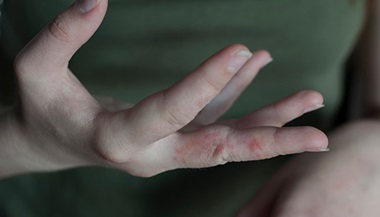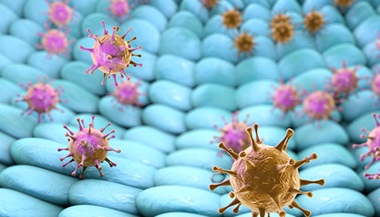Malaria
What is malaria?
A parasite causes malaria. A bite from an infected Anopheles mosquito passes the parasite to humans. These mosquitoes are found in the tropics and subtropics in almost all countries. Nearly all cases of malaria in the U.S. occur in people who have traveled to other countries. Treatment removes the parasite from the blood.
After the parasites enter the body by a mosquito bite, they disappear from the circulating blood within an hour and gather in the liver. After several days, infected red blood cells (RBCs) emerge from the liver and infect other RBCs.
What causes malaria?
If you are bitten by a Plasmodium-infected Anopheles mosquito, you can get malaria. Several different species of Plasmodium can infect mosquitos. Some species cause more serious problems than others do. One species in particular can be life threatening and may cause liver and kidney failure. Another can remain dormant in the liver for many months or years.
Who is at risk for malaria?
The risk of getting malaria depends on:
-
Your destination
-
Duration of your travel
-
Place where you will spend the evenings and nights. (Anopheles mosquitoes bite most often during nighttime hours from dusk to dawn.)
What are the symptoms of malaria?
Early stages of malaria may be similar to the flu. These are the most common symptoms of malaria:
-
Fever
-
Chills
-
Headache
-
Muscle ache
-
Fatigue
-
Nausea
-
Sometimes vomiting, diarrhea, and coughing
Symptoms of malaria usually appear from 7 to 30 days after the mosquito bite. However, malaria can develop as early as 6 to 8 days after being bitten by an infected mosquito or as late as several months after leaving an area where there is malaria.
Always consult your healthcare provider for a diagnosis.
How is malaria diagnosed?
Along with a complete medical history and physical exam, you may also have blood tests to rule out other possible infections. Using a microscope, your doctor can view malaria parasites in the blood to confirm the diagnosis.
How is malaria treated?
Your healthcare provider can determine specific treatment for malaria based on:
-
How old you are
-
Your overall health and medical history
-
How sick you are
-
How well you can handle specific medicines, procedures, or therapies
-
How long the condition is expected to last
-
Your opinion or preference
Treatment in the early stages is most effective. Delaying treatment can have serious consequences. Treatment for malaria will vary depending on which specific species of Plasmodium you were infected with and the severity of the disease.
Treatment involves taking medicines that kill the parasite in the blood.
What are the complications of malaria?
Complications of malaria are more common with falciparum malaria, which is the most potentially life threatening. People with severe falciparum malaria may develop liver and kidney failure, convulsions, and coma.
Can malaria be prevented?
You can prevent malaria by using antimalarial drugs and taking measures against mosquito bites. This includes such as using mosquito nets when sleeping at night and insect repellent during the day.
Medicines
When planning to travel to an area where malaria occurs, talk with your healthcare provider well in advance of your trip. He or she can prescribe medicine to prevent malaria. But, travelers to different countries may have different recommendations. Travelers visiting cities or rural areas where there is no risk of malaria may not need preventive drugs. You'll need to have an exact itinerary so your doctor can determine what treatment you need.
There are several medicines to prevent malaria in travelers. Determining which medicine is best depends on several factors, such as your medical history and the amount of time before your trip. For treatment to be effective, you must take the medicine exactly as prescribed. And, you must start these medicines before you arrive at your destination and continue them for a specific number of days or weeks after your return, depending on which medicine is prescribed.
Protection from mosquitoes
Be aware that you are still at risk for malaria even with the use of protection.
To avoid mosquito bites, the CDC recommends the following:
-
Apply insect repellent to exposed skin. The recommended repellent contains 20% to 35% N,N-Diethyl-meta-toluamide (DEET).
-
Wear long-sleeved clothing and long pants if you are outdoors at night.
-
Use a mosquito net over the bed if your bedroom is not air-conditioned or screened. For additional protection, treat the mosquito net with the insecticide permethrin.
-
Spray an insecticide or repellent on clothing, as mosquitoes may bite through thin clothing.
-
Spray pyrethrin or a similar insecticide in your bedroom before going to bed.
Note: According to the CDC, vitamin B and ultrasound devices do not prevent mosquito bites. Important, current information about prevention and precautions is available online at www.cdc.gov/malaria.
When should I call my healthcare provider?
If you become ill with a fever during or after travel in a malaria risk area, seek prompt medical attention and tell your healthcare providers of your recent travel. Don’t assume you have the flu or some other disease without having a lab test to determine if the symptoms are caused by malaria.
Key points about malaria
-
Malaria is a disease caused by a Plasmodium species parasite. A bite from an infected Anopheles mosquito transmits the parasite to humans.
-
Nearly all cases of malaria in the U.S. are in people who have traveled internationally.
-
Early symptoms of malaria may be similar to the flu.
-
If you become ill with a fever during or after travel in a malaria risk area, seek prompt medical attention and tell your healthcare providers of your recent travel history.

Using Mosquito Brains to Fight Malaria
Since mosquitoes use their sense of smell to find us, understanding how different odors guide their blood-seeking behavior could help us foil their efforts.





